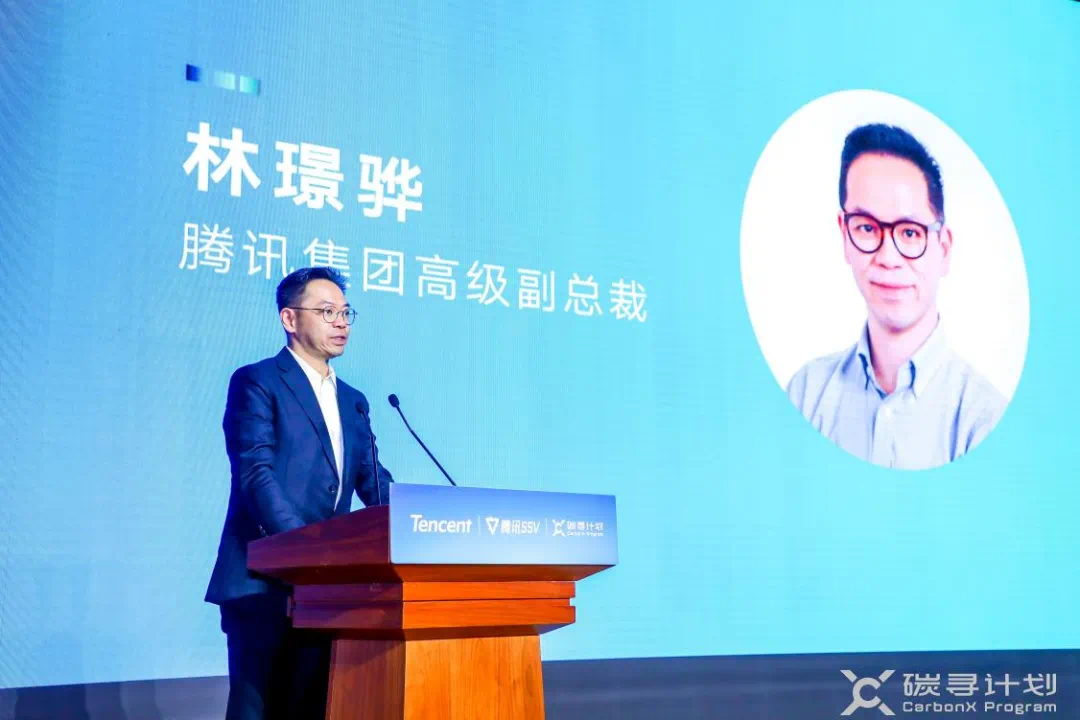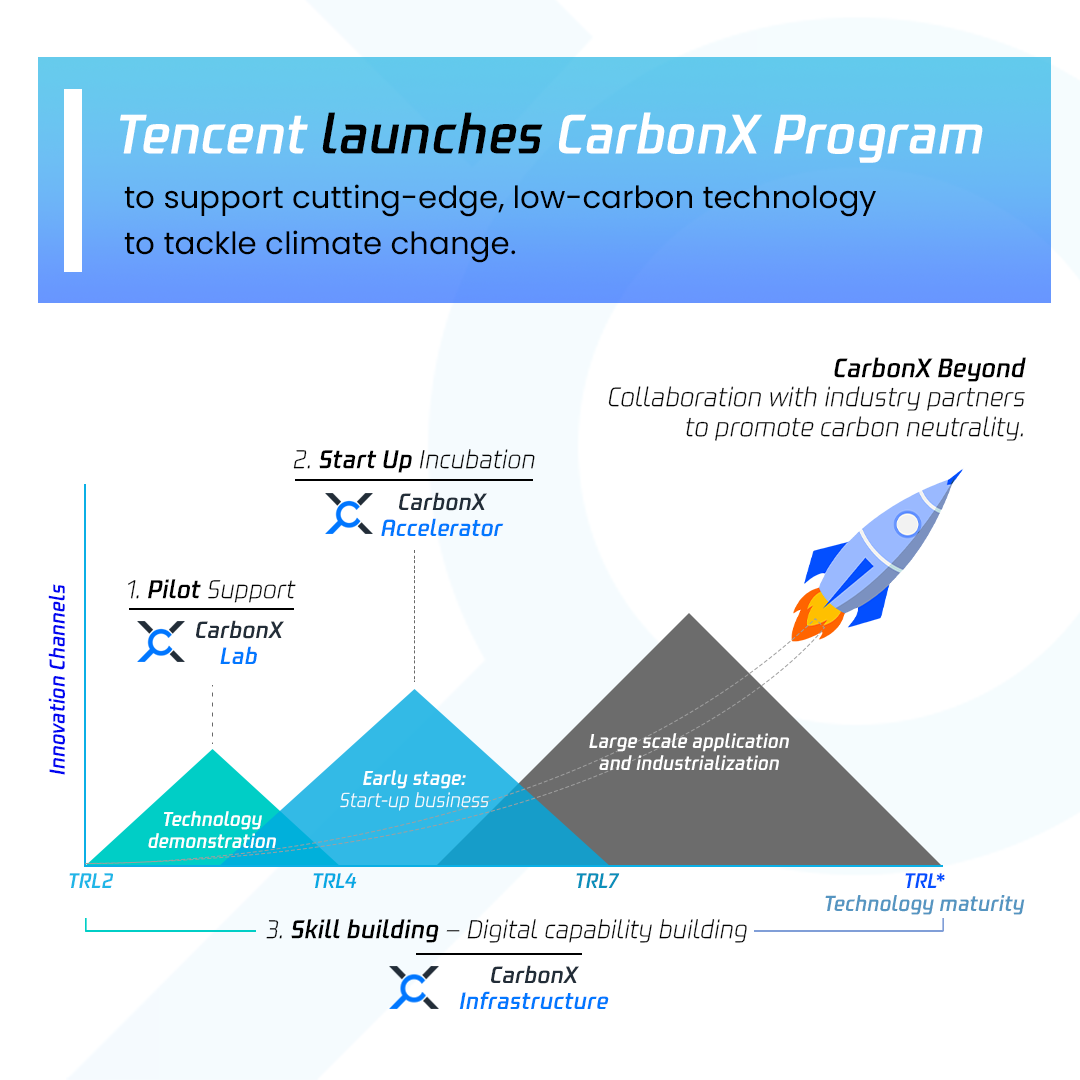Tencent Launches the CarbonX Program to Advance Technology Innovation to Mitigate Climate Change
While a clean energy transition is underway, we need a diverse mix of green and low-carbon technologies to work together, among which carbon capture, utilization and storage (CCUS) technology has emerged as one of the key tools that will support a greener economy.
To this end, Tencent launched its flagship “CarbonX Program” on March 23. The program aims to encourage and support development of next generation low-carbon technologies. It will also promote the large-scale application of such cutting-edge technologies by 2030. The first phase of the program focuses on carbon capture, utilization and storage.

Carbon Capture, Utilization and Storage as a Solution
CCUS is not new. Having been in development for decades, it is the technology of stripping or capturing carbon dioxide emitted in industrial processes before, or even after, it enters the atmosphere. Carbon dioxide is then injected into geological formations for long-term storage deep underground or converted into commercially viable products such as chemicals, fuels, cements, and plastics.
While CCUS is technologically complex and costly, ongoing development is being done to scale up its application and improve market viability. Both private and public sectors around the world are investing resources to develop CCUS with the goal of deploying it at a commercial scale.
Tencent is keen to contribute to the development of this technology. We will use our expertise to accelerate cutting-edge solutions to combat climate change as part of our commitment to becoming carbon neutral in our operations and throughout our supply chain by 2030.
We appreciate the importance of CCUS in reaching carbon neutrality, and we are working with Carbfix, an Icelandic technology that turns carbon dioxide into stone, to widen its application in our operations. Now, we are excited to launch the CarbonX Program in collaboration with our partners who share the same vision for CCUS.
How “CarbonX” Works
The CarbonX Program is a combined accelerator and digital capability building program dedicated to exploring next-generation low carbon technologies and promoting the large-scale application of these technologies by 2030 with catalytic funds and resources. During its initial phase, the program will focus on CCUS solutions and projects.
The program is underpinned by three pillars. Universities, institutions, NGOs and startups are invited to submit business proposals.
- CarbonX Lab: Identify and incubate potential research institutions, universities, or labs that leverage new technology to introduce game-changing climate change solutions; help them launch their pilot projects for industry demonstration.
- CarbonX Accelerator: Accelerate the growth of startups that exhibit commercialization potential.
- CarbonX Infrastructure: Support the establishment of infrastructure (such as databases and carbon sequestration monitoring tools) to facilitate industry development.

As stated by the United Nations, the window of opportunity to keep 1.5°C is closing rapidly. We are committed to using our skills, expertise, and resources to further contribute to solving this global challenge.


